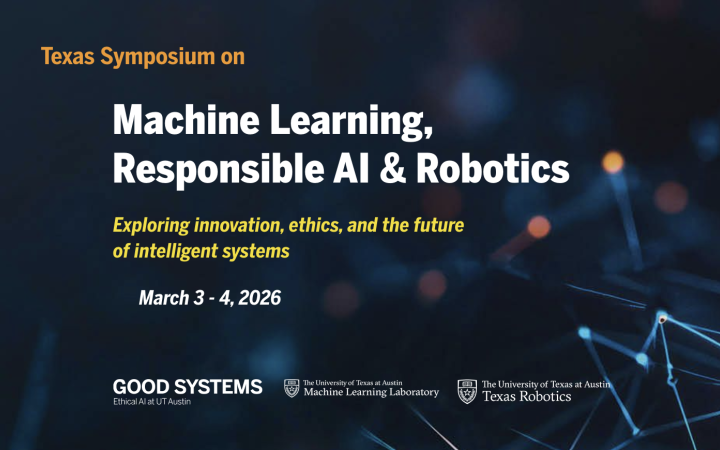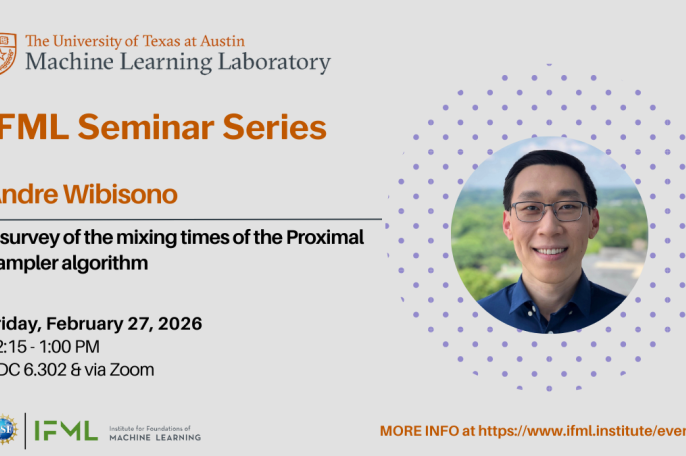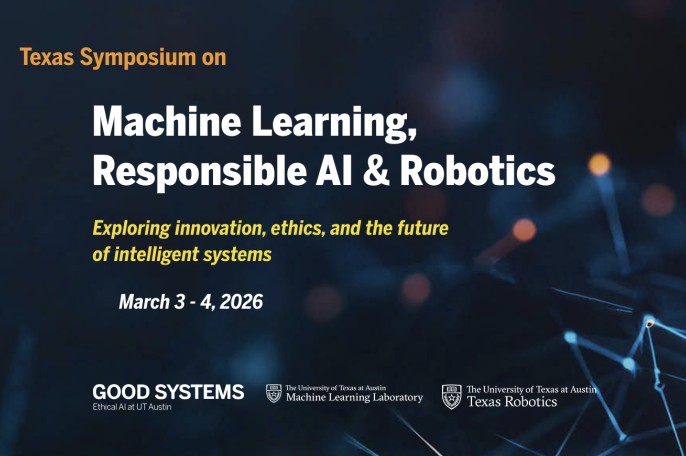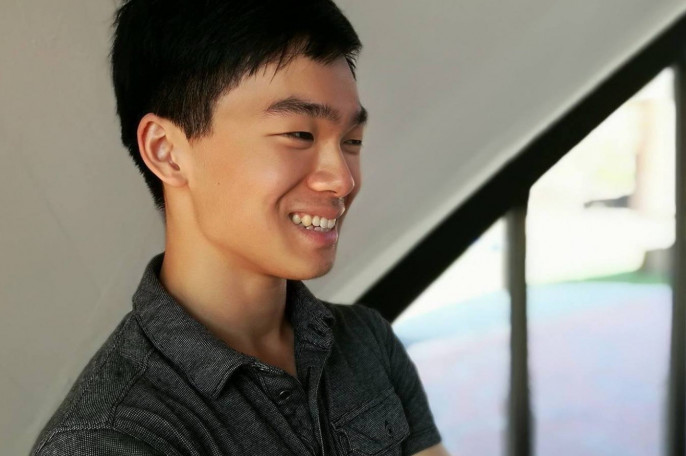
-
Texas Symposium on Machine Learning, Responsible AI & Robotics
Join Texas Robotics, the Machine Learning Lab, and Good Systems on March 3 & 4 for a two-day symposium exploring responsible innovation in AI and Robotics. Discover boundary-breaking research insights and enjoy thought-provoking talks...
Upcoming Events
- February2712:15 - 1:15pm
IFML Seminar
Event DetailsAbstract: Sampling is a fundamental algorithmic task with many connections to optimization. In this talk, we survey a recent algorithm...
- March3throughMarch4Event Details
Join Texas Robotics, the Machine Learning Lab, and Good Systems on March 3 & 4 for a two-day symposium exploring...
Past Events
- March253 - 4 pm
ML+ X Seminar
Event DetailsArtificial intelligence continues to permeate healthcare but has been met with mixed success. While the digitization of the patient has...
- March2511 am - 12 pm
ML+ X Seminar
Event DetailsWatch the replay Abstract: Many potential applications of artificial intelligence involve making real-time decisions in physical systems while interacting…
- March23throughMarch24
Workshop
Event DetailsThis workshop will explore emerging research problems and opportunities at the exciting intersection between computer systems and machine learning. We...
- March412 - 1 pm
Use-Inspired Research Seminar
Event DetailsIn this work from Microsoft Research, Jerry Li and Allen Liu consider the problem of clustering mixtures of mean-separated Gaussians...
- March43 - 4 pm
ML+ X Seminar
Event DetailsText simplification aims to help audiences read and understand a piece of text through lexical, syntactic, and discourse modifications, while...
- February113 - 4 pm
ML+ X Seminar
Event DetailsML+X seminar with Joshua Chang, M.D., Ph.D., assistant professor in the Department of Neurology at The University of Texas at...







